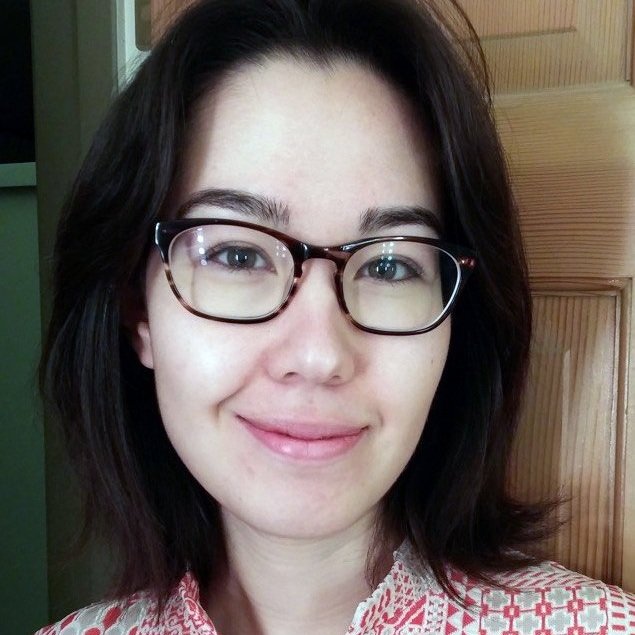Contributors
Alenda Chang
Alenda Y. Chang is an Associate Professor of Film and Media Studies at the University of California, Santa Barbara. Chang’s work has appeared in numerous journals, among them Interdisciplinary Studies in Literature and Environment, Qui Parle, electronic book review, Feminist Media Histories, and Resilience. Her 2019 book, Playing Nature: Ecology in Video Games (University of Minnesota Press), develops environmentally informed frameworks for understanding and designing digital games. At UCSB, Chang co-directs Wireframe, a studio promoting collaborative theoretical and creative media practice with investments in global social and environmental justice. She is also a founding co-editor of the UC Press open-access journal, Media+Environment.
William Chavez
William Chavez is a Ph.D. candidate within the Department of Religious Studies at the University of California, Santa Barbara. A scholar of American religion, folklore, and popular culture, his doctoral dissertation examines the practice and popular mediatization of exorcism in the United States. His research interests include horror and dark fantasy but also science fiction, comic books, video games, and more. One of his upcoming projects examines the professional and amateur gaming tournaments, gaming expos, cosplay conventions, and similar gaming/fandom congregations attached to the Mortal Kombat franchise. As a scholar of lived religion, William is fascinated by the complex interests and behaviors that constitute folk gamer culture (e.g., online versus in-person competition, completionism with respect to time versus scope, hours devoted to Easter egg discovery, and earned forms of individual expression); interests and behaviors that continue long after the purchase and play-through of a specific game.
Tara Fickle
Tara Fickle is Associate Professor of English at the University of Oregon, and Affiliated Faculty of the Department of Indigenous, Race, and Ethnic Studies, the Center for the Study of Women in Society, and the Center for Asian & Pacific Studies. Her first book, “The Race Card: From Gaming Technologies to Model Minorities,” (NYU Press, 2019, winner of Before Columbus Foundation’s American Book Award), explores how games have been used to establish and combat Asian and Asian American racial stereotypes. Fickle is currently working on a digital archive and analysis of the canonical Asian American anthology, Aiiieeeee!, with additional research projects on Chinese gold farming and the racialized dimensions of esports. More information can be found at tarafickle.com.
Gregory P. Grieve
Gregory Price Grieve is Head and Professor of the Religious Studies Department at The University of North Carolina at Greensboro. Grieve holds that the speculative humanistic study of popular culture is essential for creating curious, informed citizens, gainful employees, and future ethical leaders. He researches digital religion, particularly the study of video games. Grieve has authored five books, as well as dozens of book chapters and journal articles. His latest, Cyber Zen: Imagining Authentic Buddhist Identity, Community, and Practices in the Virtual World of Second Life, analyzes online silent meditation. He is currently working on Video Games and the Problem of Evil, which argues that video games often operate as potent vernacular theodicies through which players engage with contemporary ethics. In his not-so-abundant free time, Grieve likes to spend time with his dogs, garden, create conceptual art objects, and search for the meaning of life.
Gabrielle Haley
Gabrielle Haley holds a Master’s degree in Religious Studies from UNC Charlotte, as well as graduate certificates in Japanese Translation and Buddhist Studies. Her Master’s thesis focused on how the teachings espoused by Dōgen Zenji’s Tenzo Kyōkun have come to inform a niche of vegetarian cookbooks by appealing to a “spiritual-but-not-religious” audience, and how modern Zen practice can use current food and social media trends for further promulgation. More recently her research has looked at Zen in the era of COVID-19, as well as nuances present in the translation of Japanese religious texts versus those of a secular nation.
Christopher B. Patterson
Christopher B. Patterson is an Assistant Professor of The Social Justice Institute at The University of British Columbia. His first book, Transitive Cultures: Anglophone Literature of the Transpacific (Rutgers University Press, 2018), won the American Studies Association’s 2020 Shelley Fisher Fishkin Prize for International Scholarship in Transnational American Studies. His latest book, Open World Empire: Race, Erotics, and the Global Rise of Video Games (NY Press, 2020) was a finalist for both the 2020 Speculative Fictions and Cultures of Science Book Award, and the 2021 John Hope Franklin Publication Prize of the American Studies Association. His articles have appeared in American Literature, Cultural Studies, American Quarterly, Games and Culture, and other venues. He writes award-winning fiction under his matrilineal name, Kawika Guillermo. Check out Stamped: an anti-travel novel (2018) and All Flowers Bloom (2020). In 2013, he founded the podcast New Books in Asian American Studies, and in 2020, he founded The JAAS Podcast. He serves as the Managing Editor for decomp journal, and is the current Book Review Editor for The Journal of Asian American Studies.
Organizers
Daigengna Duoer
Daigengna Duoer (pronounced “dye-gain-na” “door“; she/her/hers) is a Ph.D. candidate in the Religious Studies Department at the University of California, Santa Barbara. Her dissertation maps the history of transnational and transregional Buddhist networks connecting early twentieth-century Inner Mongolia, Manchuria, Republican China, Tibet, and the Japanese Empire. Daigengna is a host for the New Books in East Asian Studies Podcast, a channel on the New Books Network. Although a historian of religion most of the time, Daigengna can sometimes be found thinking about various questions in the humanities through gaming and play.
Keita Moore
Keita C. Moore (him/his) is a PhD candidate at the University of California, Santa Barbara, in the East Asian Languages and Cultural Studies program. His dissertation considers the cultural politics of game design as it has both responded to and informed the production of social spaces and times within contemporary Japan. His research interests include the diverse sites of gameplay both past and present—the arcade, the home, the commute—and the ways that digital play inflects contemporary discourses around place, temporality, and power. He completed his M.A. at the University of Hawai‘i at Mānoa in Asian Studies with a thesis on the intersection of gender, war memory, and violence within Japanese videogames. Before that, he spent several years as an in-house localization specialist with Square Enix in Tokyo, where he translated games including FINAL FANTASY XIV: A Realm Reborn.
Kaitlyn Ugoretz
Kaitlyn Ugoretz is a digital anthropologist of Japanese religion and a Ph.D. candidate within the Department of East Asian Languages and Cultural Studies at the University of California, Santa Barbara. Her dissertation traces the globalization of contemporary Shinto and the growth of online Shinto communities. Her research interests include religion, digital technology and social media, popular culture and media (including videogames!). Ugoretz is the Japanese Religions editor for The Database of Religious History and the host of the educational YouTube channel Eat Pray Anime.









